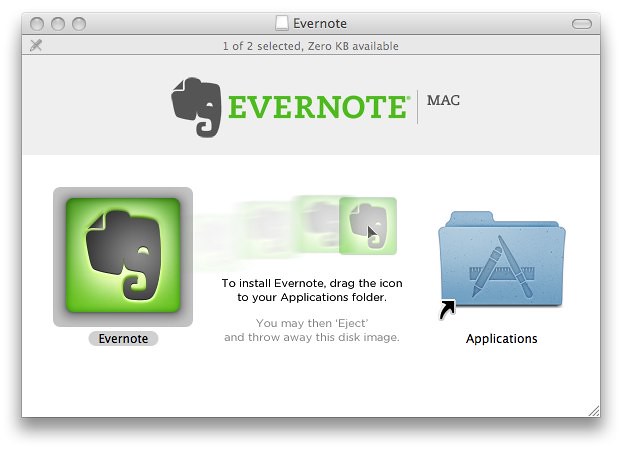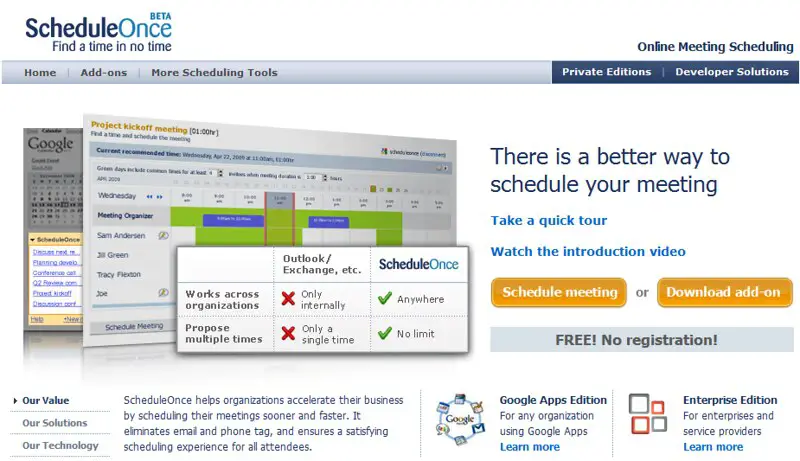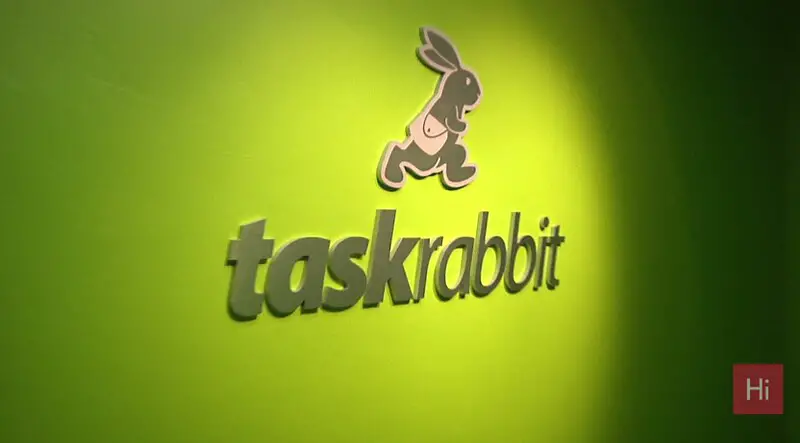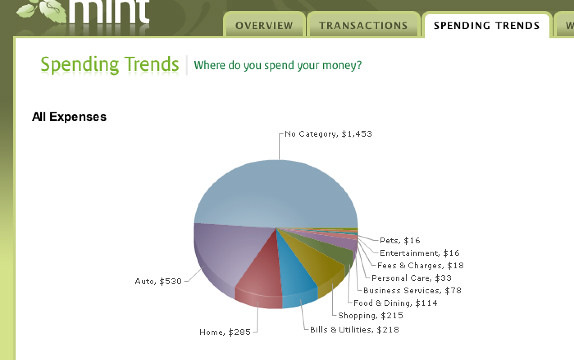Each one of us wants to spare more time for whatever we enjoy doing, which could mean being with our family or enjoy some hobbies. Nevertheless, we can never create some time to do what we love doing.
This is what this summary is about. You will see what to do to create time in your agenda and room in your brain to spare plenty of time to do what you wish to do. Rooted in three central aims – Optimize, Automate and Outsource – they show you how to make whatever you do as effectively as possible, from managing your monetary resources to keeping yourself healthy.

Chapter 1 – Track your life to figure out where you can create more time.
You knew about the 80-20 rule before, perhaps. What it says is that giving only 20 percent of your time and energy is responsible for 80 percent of whatever you achieve. This isn’t even only limited to studying or working; on the contrary, it applies to anything you do. Then how do we understand where we should save time?
One option is tracking.
Who can actually find time to track their hectic agenda and live it? Fortunately, there are means you can use to get tracking your time done much easier.
Go to RescueTime, a program keeping track of what you really do on your computer a whole day. If you notice a specific internet site or application is eating your time, RescueTime will prevent access to it. No more issues!
Let’s say it is your health rather than your efficiency that you want to monitor, what do you do?
You should go the old-school way for this: Get yourself something like a journal and write down whatever you eat throughout a day. You can try a pedometer to see how many steps you take, or just try to get on the scales to see how much you weigh each day. To ameliorate your day more quickly, you’ll need to know about your day more.

What is suggested by the betterment of something as comprehensive as our diurnal habits? Consider it as bettering your processes. See IKEA, for example. IKEA provides very improved instruction books for building every product, from a coffee table to a geometric lamp.
These instructions have been highly simplified to the core– a few language-independent, easy-to-follow steps. It is high time you adopted IKEA’s method for their instruction books. No matter what you’re assigned to do, drafting emails or arranging meetings, you should reduce the confusion to as low a level as possible and have it completed in as few stages as possible.
Chapter 2 – Adding a supporting brain to create a worthy room on your brain.
We have a misconception that we can handle multiple tasks and have excellent memories. We cannot store everything in our memory, though. If we had another brain, our lives would be much easier.
Actually, you know what? There is a way of doing it!
Some novel appliances that will make us keep dates and particular things in our minds have come out. There is a program called Evernote, for instance, which can be used for any sort of notes. These notes can be texts, pictures, manually taken notes, or from the Internet. It doesn’t charge anything and you can take as many notes as you want. The writer has approximately 1800 notes in his own app currently!

Think of Evernote as a support for your brain. As neuroscientists have demonstrated, in arranging data, Evernote functions rather likewise the human brain, joining similar thoughts into intricate, interconnected nexus.
What do you do if you already can arrange things yet cannot save time from arranging?
You can call virtual assistants to come into play at this point. Now, it is possible to employ someone or more people and assign them with duties via the Internet. Furthermore, there exist two sorts of virtual assistants: on-demand and dedicated.
An on-demand assistant service includes a supply of assistants. Suppose you have a job to finish, which requires you to do such things as revising a document or developing a PowerPoint presentation. The job will be handled by anyone who is free at that moment. By paying $25 each month, you can get 5 jobs done with support provided by Fancy Hands. If you pay $95, Fancy Hands lets you get support for as many jobs as possible without any restriction.
In the case of dedicated assistants, your jobs will be handled individually, which indicates there’s a more solid link between you and them, which will make them know you more and finally undertake harder jobs. In Zirtual, you can hire a dedicated assistant for ten hours per month.
Chapter 3 – Customize to create time – and to spare money!
Let’s assume you hit on a good plan for the excellent bedroom shelving unit to satisfy your necessities. Since you’ll need to create it yourself, you’ll be the one to purchase necessary equipment, take from neighbors what you need and consume time to make things ready and tidy up. Don’t you wish there was a simpler and less costly way of doing that?
There is one way: 3D printing.
3D printing provides a plethora of opportunities if you produce products modified to your needs. Shapeways, for example, is a website in which you just share a 3D model, and they produce it for you by printing.
For instance, the writer decided to generate a bracket made to order so that he can fix his new MacMini on his wall. He made a simplistic design of his idea and via the Internet outsourcing program Fiverr, he searched for anyone able to convert his idea into a whole 3D model. Later, he shared the 3D model with Shapeways and after one week, the custom bracket he ordered was delivered to his place.

Is this an accomplishment for you? Then check this out: the writer later benefitted from the Shapeways e-commerce program by putting his MacMini bracket into the sale and earning $400 after six brackets were sold.
By customizing you will not only be able to set aside and also earn more money, but you will also have more spare time.
Vitamins on Demand, for instance, is a service that gathers whatever medicine and supplements you need and later arranges them into different sets for every day. No more filling up your vacation bag with all your medicines while fretting if you’ve everything with you or not. Why not simply get however many packs you’ll have to take and leave your house?
Do you need one more example? Consider the strenuous job of getting a suit that matches. Do you feel like you need to save half of that time? Then join Indochino. Indochine is a company making made-to-measure suits and will help you in your measuring, making sure the measurements you get can be used repeatedly for a suit that matches precisely right.
Chapter 4 – Start managing your workweek.
By the time Tim Ferriss’ The 4-Hour Workweek came out, there was certainly some hyperbole meant – it is basically impossible to have a book written when you just spend 4 hours each week to write it! Nonetheless, the book draws attention to a key ideat: you have to manage your workweek, and determine what you’ll do, and when you’ll do them.
Where do we start?
Start by deciding on the most suitable hours of working for yourself in a day. This will by itself render you more productive. For some of us, it is more productive to work at night; for others, the morning hours are the best. Some prefer working for a short amount of time each day, whereas others prefer doing most things in briefer spans of time.
Our working methods differ, so try to find out the most suitable one for your own!
It’s crucial to realize the things causing you to stall. Frequently it’s outside agents – a supplier that delays every time, or clients who cannot decide.
How do we solve it?

Once you start narrowing the road of interaction with your customers, your days will be more efficient and you will be compelling your customers to be more effective, too. They might be grateful for it later!
One other thing in your workday that eats your time is to organize meetings. I don’t know if you’ve heard but in order to schedule a meeting following the normal procedure, you will have to write 3 to 4 emails on average. Fortunately, programs like ScheduleOnce will, as you can deduce from the name, help you have your meeting organized for the next available time.
The program lets you make your schedule accessible for everyone, which means you and your co-workers can determine meeting times that everyone concerned can attend.
Chapter 5 – Errands accumulate over time, you get rid of them!
If you actually knew the amount of time wasted as you work on tasks every month, you’d feel astounded. I mean, what can a rush to a small store to get toilet paper or dish soap do? What could happen? In reality, these errands accumulate. If you want more effectiveness, you have to do away with those errands!
But where to begin?
You can start by getting a membership account on the website of an online delivery company. Amazon’s Subscribe & Save is one of them. They transport essential products such as toilet paper, razors, shampoo, and laundry detergent to you periodically.
If you, for instance, consume two toothpaste tubes a month, then make an arrangement to get two tubes transported to you each month and no longer spend time purchasing toothpaste.
Toilet paper is indeed necessary but you can think of many other essential products to get transported to your door. By ordering nine-volt batteries to have delivered to you every six months through Subscribe & Save, the writer makes sure that his smoke detectors never stops functioning.
This is not possible to do for every errand, though. You’ll certainly face some errands that will take you by surprise, and urge you to dash out and run them before it isn’t long. By means of outsourcing, this is no longer an issue to spend your time on.

One example is TaskRabbit, which is one fabulous online outsourcing marketplace for such unimportant, unpredictable errands as a dash for groceries or to have your computer or car mended.
The writer recounts his experience with TaskRabbit:
His nephew in Los Angeles asked for a slide for his second birthday. The writer lives in New York; so, via TaskRabbit, he got in contact with someone from Los Angeles to buy the slide at an IKEA store in Long Beach, bring it to where his nephew lives and combine its pieces. A surely memorable gift just for the price of $47, all included.
Chapter 6 – Keep track of your finances with the newest programs.
In the first chapter, the author taught us the importance of tracking things such as your time and eating habits. Yet, wasting huge amounts of time tracking everything will not be propitious every time. When you make efforts to track where you spend your money, for instance, you usually wind up being anxious and stressed.
Monitoring on what and where you expend is a hurdle, particularly if you have more than one bank account and credit card, excluding other things such as loans, mortgages and stocks, and bonds.
Then how about utilizing some novel programs and shorten the time wasted worrying above your finances?
Mint.com is an excellent program for arranging your economics and monitoring your fiscal condition.
The only thing you’ve got to do is to give Mint.com passwords and user names, and details of your bank accounts, loans, and credit cards, and you will be notified by email if a balance is falling toward the red, or when a huge deposit or withdrawal from an account has been realized, and when a payment has been made into your bank account.

Mint.com can give a compartmentalized and extensive summary of your financing which enables you to learn the amount of money and time you expend. Mint.com can
use your past spending habits to recommend budgets for you!
There is this innovative novel program called BillShrink as well and you won’t need to worry and can set aside money now. The program just needs a few details about you: your checking account information, your driving habits, how frequently you use your cellphone and what the amount of money you expend on other services like watching films and magazine memberships is.
On the basis of this data, Billshrink draws options that will reduce your costs and summarizes the amount of money these options would help you set aside for two years; they inform you of new opportunities and offers.
Don’t be astounded, though, if you notice you could be setting aside even more than you imagined: The first time when the writer tried the program, it occurred to him that he could set aside about $14,000 in a period of two years!
Chapter 7 – Give yourself limits and improve your living standards.
All of us have gone through the same stuff: a table swarming with masses of paper; a floor where one has no option but a tight path through a chaos of things to walk through. What is more, because of all those things surrounding you, it is almost impossible to find the thing you look for when you have to get it.
You don’t actually have to stress yourself about it! You can surmount it easily by drawing limits for your own.
Begin by drawing an upper limit that will aid you to locate and monitor all the things you own.
The writer’s electronic gear stash that used to take up the whole space in the wardrobe is a good example. With time, however, the wardrobe got more and more congested and locating a particular cable involved moving everything out of the wardrobe and onto the floor. It occurred to the writer that everything had been in chaos, and determined to do something about it.
Hence, he said farewell to his electronic devices and sold most of his gear on eBay. The ones remaining behind were few enough to fill a box, which was his upper limit. If he purchases some other electronics, then he must dispose of some others in the box. By applying this method, he can easily control his stash and is able to get what he has to take any time, and his stash is orderly now.

For the things that take so much time of yours (like perusing Facebook, perhaps), the upper limit helps you monitor them; however, there are some other things that will boost your life standards like doing exercises, meditation, and going on a journey.
How can you do it?
By drawing lower limits. The writer, for instance, has drawn a lower limit which tells that he has to go on at least one trip each month, to run at least 30 miles weekly and to prepare home-made food at least three days every week. When you draw lower limits for leisure activities, you’ll ensure you don’t constantly spend your whole time working.
Chapter 8 – Organize your jobs not to lose your concentration.
You are just about to start doing something and the next thing that happens is that you get a message or email causing you to lose your focus. Has this irritating case occurred to you as well? It destroys your concentration and then you’re annoyed to get back on your job.
There is actually something you can do to protect your concentration: batching.
Batching can be defined as the straightforward process of categorizing alike jobs together and finishing them up through batching, rather than doing one after another, in various places. It’ll be simpler to concentrate on your task by applying this method.
For some, batching is done through the determination that they’ll reply to emails at the first ten minutes of each hour, rather than replying to them the moment they fall into your mailbox. The writer uses batching by making his bill payments on Fridays rather than whenever he receives them.
Surely, after you take up batching, you’ll know the precise amount of time some specific things consume time. Write down if some tasks appear to consume more time than you foresaw, which is an indicator that you should perhaps make it better.

One perfect point to begin is to dispose of redundant paperwork. Of course, some people talk continuously about society without papers; however, we keep coping with annoying papers. Online programs are here for this reason: to reduce our dependency on paperwork even more.
If you at some point in your life need to post a document by traditional posting system, Postal Methods is what you are looking for then. The only thing you have to do is to upload your document and then the company gets a print of your document, places it inside an envelope with a stamp and finally delivers it to the target mailbox. You’ll save a great much of time, and does anyone actually enjoy licking stamps, anyway?
Chapter 9 – Health is the most important secret for efficiency.
It is that straightforward: sleeping enough and having a healthy diet are the determinants of energy you’ll have in order to get over with the tasks you want to do. There is no efficiency program that can alter it!
When you don’t get enough sleep, you begin to release a hormone with a very disagreeable name, which is called ghrelin. With ghrelin, you become more hungry and your leptin hormones, which are responsible for metabolism, decrease in level. If our metabolism doesn’t work well, we will unavoidably get exhausted.
To sleep better, you can follow two basic actions. First, take Vitamin D at breakfast every day. Then, stay clear of such blue-light-radiating electronics as TVs, iPads, and computers one hour before sleeping.
Living healthier is easy, too. It’s merely about burning fats, isn’t it? Nope. In many people’s eyes, fat is viewed as a foe; however, the actual criminal is sugar. Fat helps our brains work but consuming substantial amounts of sugar hinders the intake of vitamins A, D, E, and K. Then, keep sweets and processed food no longer in your life! Go search for natural foods and find ways to consume more the “good” fats you can receive from olive oil and avocados.

After making sure you sleep well and your diet is healthy, you should begin to consider exercising. Saying you can’t get your body moving because you’re stressed is nothing but a defense! Exercise actually helps lessen anxiety, and you’ll see you’ll do much better every day with a well-prepared fitness plan.
Create a workout regimen for yourself that’ll consist of three sorts of movement.
To begin with, engage in something that requires power and ability. For example, rock climbing or parkour can be perfect.
Then, high-intensity interval training should be used, too – work out in the utmost capacity for a brief time, then rest for a while.
And, lastly, do some mobility training – yoga or simply a classic stretching training sort of thing.
Less Doing, More Living: Make Everything in Life Easier by Ari Meisel Book Review
Nowadays, life appears to be full of stress; however, you can get out of the mess and save your time. With straightforward techniques and innovative novel programs and services to help you, you’ll immediately be able to spare time to do what you enjoy doing.
Clean up your mailbox!
For e-mails which include the term “Unsubscribe” and which haven’t got “FW” or “RE” in them, you can automate your e-mail service to send them into the folder ‘’Optional’’ by using the filter button. You can separate many peripheral and annoying e-mails from your inbox and view them later when you have free time.
